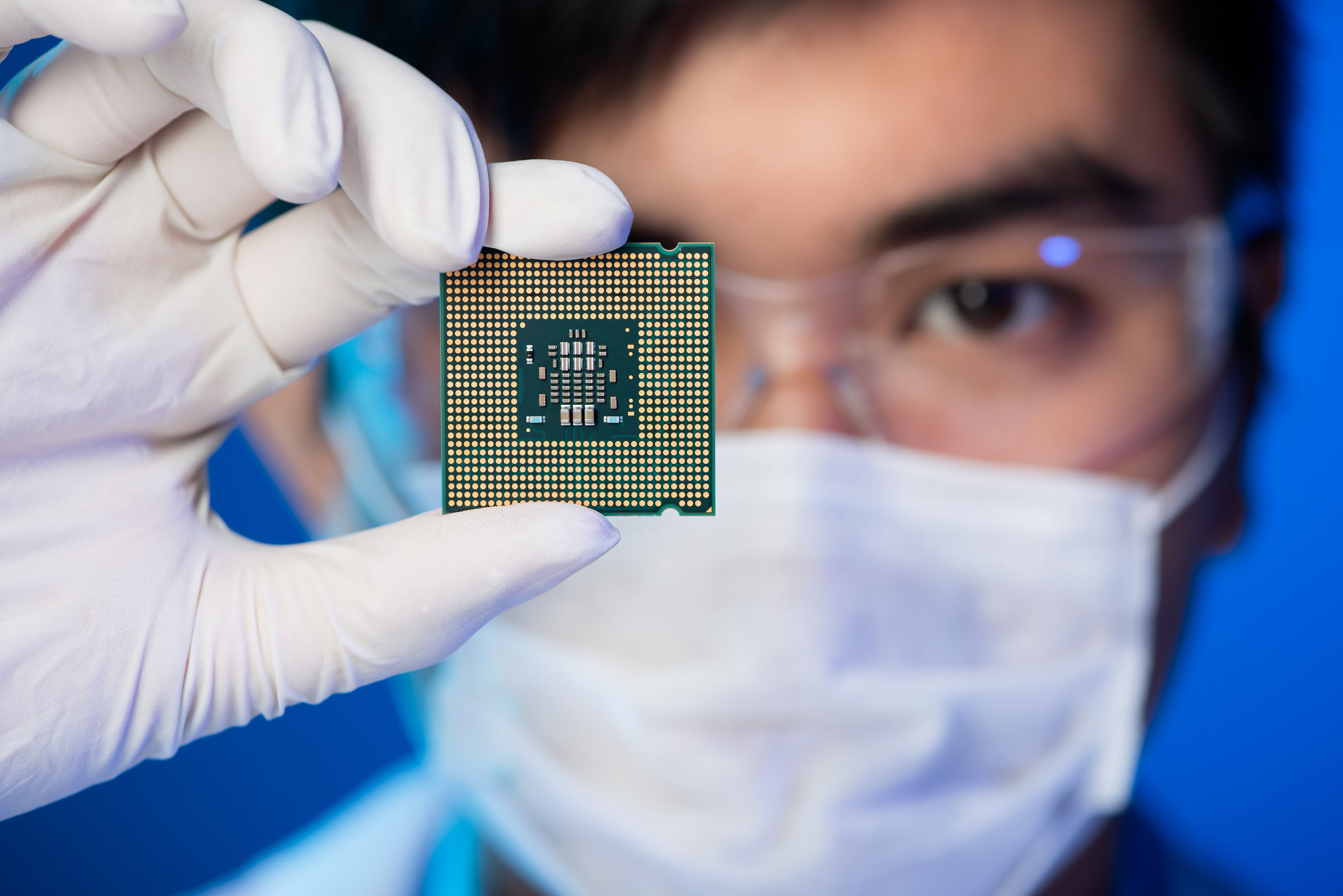As it stands today, there are only seven companies in the world with market capitalizations in excess of $1 trillion. This exclusive club includes six of the "Magnificent Seven" -- Microsoft, Apple, Nvidia, Alphabet, Amazon, and Meta Platforms.
Nvidia is the only pure-play semiconductor and data center services business with a trillion-dollar valuation right now. But as Advanced Micro Devices, Intel, Qualcomm, and more vie with it to meet the world's demand for cutting-edge processors, I wouldn't be surprised to see more chip stocks gain entrance into the trillion-dollar club.
But I don't expect any of those three will become the next chip stock to reach a market cap of $1 trillion. I predict instead that it will be Taiwan Semiconductor (TSM 4.26%), currently the ninth most valuable business in the world, worth $806 billion.

NYSE: TSM
Key Data Points
The hidden gem of the chip industry
Nvidia and AMD each develop sophisticated chips known as graphics processing units (GPUs). GPUs provide the computing power to myriad generative AI applications including machine learning, training large language models, accelerated computing, and more.
While that puts Nvidia and its rivals front and center in the artificial intelligence (AI) revolution, investors might be surprised to learn that they -- and many other chip companies -- rely heavily on Taiwan Semiconductor.
While Nvidia, AMD, and many others design GPUs and other chips, they actually outsource most of their manufacturing. Taiwan Semiconductor -- the world's most productive third-party chip fabricator -- brings their chips to life. It also boasts Amazon, Broadcom, Intel, Qualcomm, and Sony as major customers.

Image Source: Getty Images
Remember to think long term
In the first quarter, the company's revenue rose 13% year over year to $18.7 billion, a result that came in at the high end of management's guidance range.
TSM Revenue (Quarterly) data by YCharts.
One thing that you might notice from the chart above is that Taiwan Semiconductor's revenues and operating profits have fluctuated in recent quarters. That's natural. The semiconductor industry is cyclical, and Taiwan Semiconductor is not immune to the business conditions that impact its clients.
During the first-quarter earnings call, management pointed to seasonality in the smartphone business in particular as being responsible for some of the fluctuations in revenue and profit margins.
Nevertheless, its long-term outlook remains strong.
TSM Revenue Estimates for Current Fiscal Year data by YCharts.
Analysts' consensus estimate for Taiwan Semiconductor's 2024 revenue is approximately $84 billion -- representing 21% growth year over year.
It's clear that demand for GPUs will change in the short term. This is because many companies that have been buying up the most powerful chips are still figuring out exactly how AI will play into their long-term roadmaps. For this reason, while I expect corporations to allocate more capital toward those chips over time, the growth of the market isn't going to be linear.
Although fluctuations in demand will impact Taiwan Semiconductor's business, the long-term secular trends fueling AI should continue benefiting the company. The key theme here is that investors will need to remain patient as Taiwan Semiconductor's newest growth story is very much in its early chapters.
Is now a good time to buy Taiwan Semiconductor stock?
The chart below benchmarks Taiwan Semiconductor against a large set of players operating in various aspects of the semiconductor landscape.
TSM PS Ratio data by YCharts.
Trading at a price-to-sales (P/S) ratio of 11.3, Taiwan Semiconductor stock has a valuation right in the middle of that pack. I find the steep premium Nvidia stock now carries to be fascinating. While the company is surely experiencing record growth thanks to its leading GPUs and data center services, its relationship with Taiwan Semiconductor might be underappreciated.
Indeed, considering how many chip designers rely on Taiwan Semiconductor in some form or fashion, it could be argued that the company's role within the chip realm is being discounted.
I am bullish on AI in the long run, and see Taiwan Semiconductor continuing to play a critical role in its progression. I think as companies such as Nvidia and AMD continue to innovate and release new products, it will increasingly land on more investors' radar.
Given these dynamics, I see Taiwan Semiconductor following Nvidia to a trillion-dollar valuation sooner rather than later.





